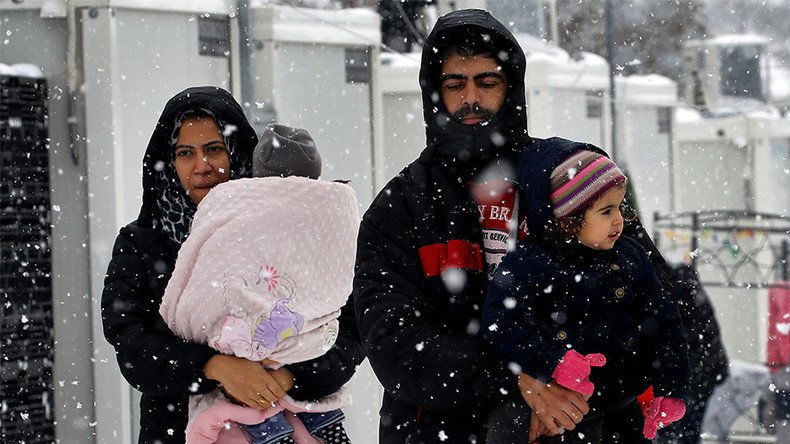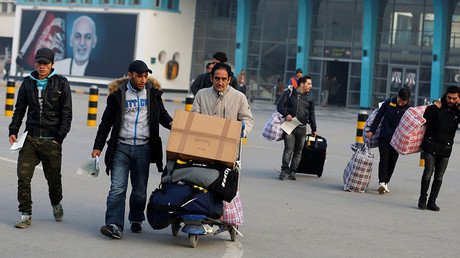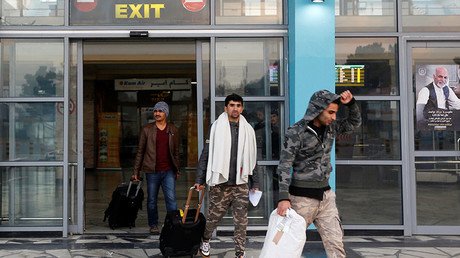Germany plans to start sending refugees back to Greece in March

Berlin is likely to reinstate a rule obliging refugees to stay in the first European country they enter and start returning them to Greece if it was their first location in the European Union, a German Interior Ministry spokesman said in an interview with AFP.
“In line with the recommendation from the European Commission, Germany believes that such transfers will be possible from March 15th,” said the spokesman, Tobias Plate.
German Interior Minister Thomas de Maiziere has already asked the country’s Migration Office to halt sending refugees back to Greece only until March 15, German media reports, citing an internal paper from the minister.
According to the EU ruling known as the Dublin III Regulations, asylum-seekers must make an asylum application in the EU country that they entered first. Refugees traveling further into Europe had to be returned to the EU country they reached first. Over the past years and especially during 2015 refugee crisis these first countries most often were Greece and Italy.
The rule, however, had been suspended for Athens with too many refugees fleeing war-torn Middle East and Africa through this country that was struggling with economic instability at that moment.
On December 8, 2016, the EU recommended that member states return to the practice of sending asylum seekers back to Greece, starting with March. The idea of removing the suspension is explained by improving conditions there compared to the past, Plate said.
The plan was met with criticism from Athens voiced by Migration Minister Yannis Mouzalas saying that the current legal framework was “unable to respond to the historic migration flows and leaves the burden to the member states that migrants first arrive in.”
Meanwhile, German refugees rights group has warned that the decision could put additional strain on Greece that is far from being fully recovered from a deep debt and economic crisis.
Refugees in Greece are currently trying to brave the unexpected and rare weather conditions – heavy snowfalls, freeze and sub-zero temperatures.
In 2015, Berlin opened its doors to Syrian refugees, bypassing the Dublin rules. The move brought some 890,000 asylum seekers in that year alone, AFP reports.
Next year the figures went down to 280,000 arrivals due to the closed Balkan route and an EU-Turkey deal designed to limit the influx of refugees.
The new initiative is expected to keep on lowering the number of refugees arriving in Germany ahead of general election that are to take place in September with immigration being one of the focal points.















